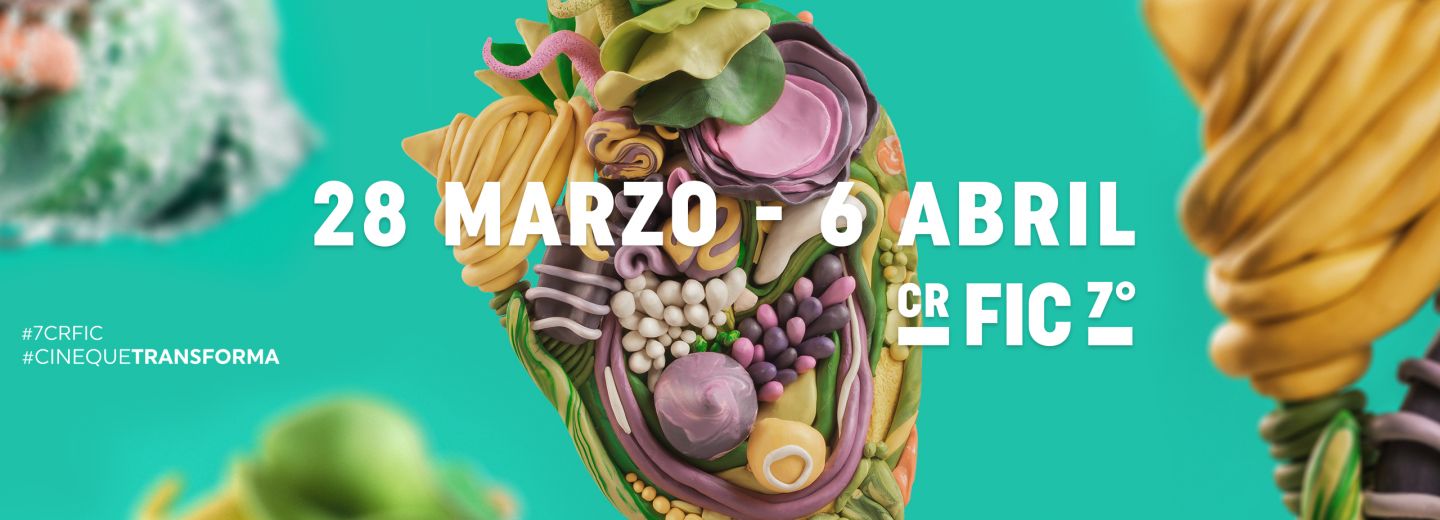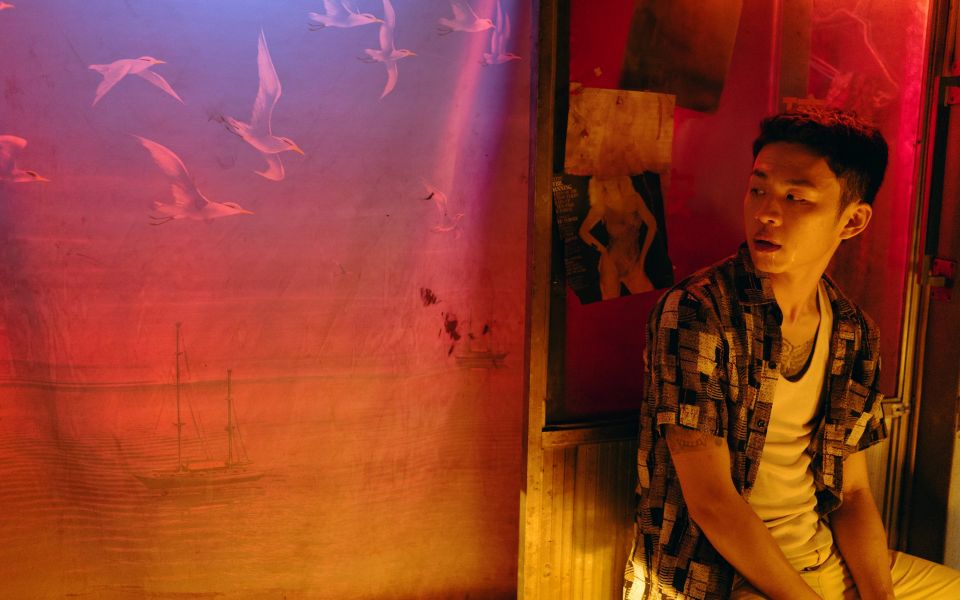- Programming consists of 66 films from 48 countries in 23 different languages.
- About 120 national and international guests will participate in workshops, meetings, debates and training activities.
- The Retrospectiva section will pay tribute to Uruguayan cinematographer María Secco.
A program that brings together 66 films in competition, and exhibits the best and most prestigious independent film from Central America and the rest of the world, can be enjoyed at the 7th Costa Rica International Film Fest (CRFIC).
The seventh edition of the CRFIC, a program run by the Costa Rican Cinematographic Production Center (Centro de Cine) of the Ministry of Culture and Youth (MCJ), will take place from March 28th to April 6th, 2019.
This year, the Festival will be held in fifteen venues located in San José, Cartago, San Ramón, Grecia, Pérez Zeledón, Jacó, Liberia and San Carlos (see the list of venues below), to ensure that a greater number of viewers enjoy a program with diverse topics and for all ages.
The Festival will also have an outdoor venue located in Plaza Mayor in the ruins of Cartago, where free performances will be screened.
According to the director of the Centro de Cine, Ana Xóchitl Alarcón, "one of the accents we are interested in sharing is that for the first time we decidedly left San José and will be in 15 venues, from Liberia to Pérez Zeledón. Thus, on the weekend that runs from March 29ht to April 1st, the CRFIC is ‘switched on’ simultaneously in most of the provinces. This has allowed us to articulate actions with other institutions and entities of the Ministry of Culture and Youth, so that the information is spread and more people are convened. It is a risky, but very enthusiastic, bet that is based on the premise that there must be territorial justice in the access to cultural rights".
About 45 international and 75 national guests will be present at the Festival, thus, directors, actors, producers, advisors, specialists and managers from all over the world will participate in meetings, debates and training activities.
In relation to the economic incentives (prizes) for the competing sections, this year the CRFIC will grant a total amount of 14 million colones in cash and other recognitions in kind.
This way, the Best National Short Film will receive 1 million colones, the Best Costa Rican Feature Film will also receive 3 million colones, and the Best Central American Feature Film 1 million colones. In the Industria CRFIC section, the Forum for the Presentation of Projects will receive 3 million colones and Film in Postproduction will award 2 economic incentives of 3 million colones each (6 million in total).
As in the previous edition, the 7CRFIC will make available to the public the App for mobile devices of the Centro de Cine free of charge, through which users can check the CRFIC movie listings with their details, as well as buy tickets and cast their votes for the films competing for public acclaim. The app can be found under the name "Centro de Cine" and is available for Android and iOS.
Programming
The Festival's programming consists of 66 audiovisual works from 48 countries spoken in 23 languages, of which 56 are feature films and 10 are short films.
Four proposals will be presented in the Central American Feature Film Competition, seven films in the Costa Rican Feature Film Competition, and ten films in the National Short Film Competition.
The 7CRFIC also has the non-competitive sections of Panorama, Radar, Foco, De Jóvenes, Retrospectiva, Cine Queer, Última Tanda and Clásicos de Culto, each consisting of films with relevant subjects and original approaches to meet the varied tastes of the public .
This year, the CRFIC pays homage to Uruguayan cinematographer María Secco, to whom the Retrospectiva section is dedicated with four of her films: Agua fría de mar, Restos de viento, La caja vacía and Tanta agua.
With regard to the selection of the films, the artistic director of 7CRFIC, Raciel del Toro, said: "I think we can feel satisfied with the curatorship we present: varied and multiple in terms of languages, nationalities, subjects, aesthetics and models of representation, but stable and constant in relation to the human and cinematographic values of all the films that will be shown. We persist in some of our already consolidated sections and introduce new ones, with the perspective that the CRFIC is a live event that should be blended with the national, regional and global reality".
The jury of the Central American Feature Film Competition and the Costa Rican Feature Film Competition of the seventh edition of the Festival includes Susana Santos Rodrigues (Portugal), who has dedicated herself for the past 10 years to the curation, distribution and communication of auteur films; Raúl Camargo (Chile), director since 2014 of the International Film Festival of Valdivia (FICValdivia), in Chile; and the renowned national filmmaker Hilda Hidalgo Xirinachs (Costa Rica).
The jury of the Costa Rican Short Film Competition includes Marija Fridinovaite (Lithuania), who is the office manager of NISI MASA (European Network of Young Cinema); Diego Ginartes (Finland-Spain), director of Cinemaissí, Finland’s Latin American film festival; and the filmmaker, screenwriter and producer Federico Montero (Costa Rica).
The team in charge of the 7CRFIC curatorship included artistic director Raciel del Toro, international executive consultant Nicole Guillemet, and the programmers and filmmakers Roberto Jaén and Cristóbal Serrá. On the other hand, the overall production is in charge of filmmaker Adriana Cordero Chacón.
As for the production work in the field of sponsorships for this edition, Cordero explained that "we have tried to ensure that the Fest leaves San José in accordance with the national cultural rights policy. To this end, we coordinated with commercial cinema venues and the Chamber of Exhibitors, which agreed not to charge for the rent of the premisses or for admission, and to offer tickets at a reasonable price. Through these and other sponsorships we have managed to secure the necessary budget for the rights of exhibition of the films, as well as to keep the venues in San José".
The sponsors of 7CRFIC are: Universidad de Costa Rica, Goethe Institute of Mexico, DHL, Luz Art, Cine House, Circuitos de cine Magaly, Jade Boutique Hotel, Central Post, Universidad Véritas, Yapp, IMC, Municipality of San José, Municipality of Cartago, Casa Caníbal and El Farolito of the Spain Cultural Center in Costa Rica, Say the Same Subtitles, Ecofantasy, National Chamber of Transportation, Sala Garbo, Aeris, Eliana López www.elianamariel.com.ar, Film Comission, the Embassy of Chile, the Costa Rican Ministry of Public Education, the Embassy of Germany, Casa Camanance, Centro Cívico por La Paz Cartago, Centro Cívico por La Paz Garabito, Municipality of Garabito, Municipality of Pérez Zeledón, Grupo Trincheras, Festival Lúdico, Radio-U, Radio Universidad and CAIAC.
Industria and Formación CRFIC
In the Industria and Formación (Training) sections, 7CRFIC continues to be committed to developing spaces for training and dialogue for professionals in the sector who will participate in workshops with international specialists addressing relevant topics for the promotion of the film industry in Costa Rica and the Central American region.
Specifically, Industria 7CRFIC selected 13 projects, six of which will participate in the Forum for the Presentation of Projects, a space for Costa Rican projects in development.
Seven other proposals were chosen to integrate the Film in postproduction section, designed for Central American films that are in the post-production stage.
The 7CRFIC will grant a total of 9 million colones to three finalist Central American productions in Industria CRFIC, as well as prizes in kind and professional consultancies of the highest level.
Formación 7CRFIC, on the other hand, has the objective of fostering skills and providing tools for the creation, criticism, promotion and distribution of films in the Central American region.
This section includes the Workshop for independent projects of exhibition: with the cinema in your hands II, with Paula Astorga (Mexico) and participants from Costa Rica, Panama and Guatemala; and the workshop Narrative Structures in Creative Documentary and Financing Models, taught by tutors Everardo González (Mexico) and Bettina Walter (Germany).
Formación 7CRFIC also features the pedagogical project From writing to acting: an actor management workshop facilitated by Martín de Goicochea (Argentina) with participants from Costa Rica, Panama and Guatemala.
Likewise, the Festival will provide training activities open to the public and free of charge, to stimulate critical reflection and debate through talks, lectures and discussion tables, where national and international guests will share their thoughts about techniques, processes and subjects related to the cinematographic universe.
After the screening of some films, Formación 7CRFIC will have guests in several question and answer sessions directly related to the listed films; these will be indicated in the hand program with two asterisks (**).
Full program
** Invited talent
Inauguration
Cómprame un revólver, Julio Hernández Cordón - Mexico
Central American Feature Film Competition
The Central American Feature Film Competition is a competitive section that serves as a platform to distinguish different sensibilities and ways of telling, but behind whose plurality lies the hallmark of Central America as a region where filmmakers share stories, concerns and identities.
La asfixia**, Ana Isabel Bustamante - Guatemala
La batalla del volcán**, Julio López Fernández- El Salvador / Mexico
Temblores**, Jayro Bustamante - Guatemala / France / Luxembourg
Yo no me llamo Rubén Blades, Abner Benaim - Panama / Argentina / Colombia
Costa Rican Feature Film Competition
The Costa Rican Feature Film Competition is a competitive section that exposes the maturity and contemporaneity of the most recent national cinema in its different dimensions and modalities of representation. The films brought together here constitute an introductory letter of Costa Rican cinema in the face of the international audiovisual community.
Callos**, Nacho Rodriguez - Costa Rica
Cascos indomables**, Neto Villalobos - Costa Rica / Chile
Dos Fridas**, Ishtar Yasin - Costa Rica / Mexico
El baile de la Gacela**, Ivan Porras Meléndez - Costa Rica / Mexico
El camino de la Negrita**, Juan Manuel Fernández - Costa Rica
El despertar de las hormigas**, Antonella Sudasassi - Costa Rica / Spain
Queremos tanto a Bruno**, Ernesto Jara - Costa Rica
National Short Film Competition
The National Short Film Competition is a section brings together Costa Rican short films in which the value of short stories as a cinematographic modality of inherent artistic quality is highlighted, as well as the format’s own distinctive traits and its constant thrive for creative inquiry. With this section, we seek to contribute to the visibility of the works of emerging Costa Rican directors.
Estelas**, Milena Salazar Sánchez - Costa Rica / Canada
Galatea al infinito**, Julia Maura, Mariangela Pluchino, Ambra Reijnen, Maria Chatzi, Fatima Flores - Spain / Costa Rica
La Bohemia**, Natalia Solórzano - Costa Rica
Molt** , Nathalie Álvarez Mesén - Costa Rica / USA / Sweden / France
¿Qué es un espejo?**, Sofía Blanco Salas - Costa Rica / Puerto Rico / USA
¿Sabés qué hacer con el silencio?**, Bernardo Mata Soto - Costa Rica
Shelter**, Nathalie Álvarez Mesén - Costa Rica / USA
Tierra ajena**, Valeria Brenes - Costa Rica
Tragaluz**, Kim Elizondo - Costa Rica / Cuba
Vigilia**, José Daniel Cerdas Piedra - Costa Rica
Panorama
The Panorama section constitutes the ideal space to bring together a more mature cinema; it is the place where we will find the most recent works of filmmakers who have become referents of independent film worldwide, either because of the masterful manner in which they revisit recurring themes in their filmography, or because they are continually reinventing themselves.
Aquarela, Victor Kossakovsky - United Kingdom / Germany / Denmark / USA
Capernaum, Nadine Labaki - Lebanon / USA / France
Cómprame un revólver**, Julio Hernández Cordón - Mexico / Colombia
Dogman, Matteo Garrone - Italy / France
Pájaros de verano, Cristina Gallego, Ciro Guerra - Colombia / Denmark / Mexico
Samouni Road, Stefano Savona - Italy / France
Sueño Florianópolis, Ana Katz - Argentina / Brazil / France
What You Gonna Do When the World's on Fire?, Roberto Minervini - Italy / USA / France
Your Face, Tsai Ming-Liang - Taiwan
Yuli, Icíar Bollaín - Spain / Cuba / United Kingdom / Germany
Radar
Radar brings together works by filmmakers who, even at an early stage in their careers as feature film directors, show a particular talent to create fascinating characters, make up stories of surprising lucidity or investigate unusual ways of narrating. It is a section to show films that do not fear distancing themselves from the usual canons associated with cinema as a language.
A Haunted Past, Fatma Riahi - Qatar / Tunisia
Another Day of Life, Raúl de la Fuente, Damian Nenow - Poland / Spain / Germany / Belgium / Hungary
Blind Spot**, Tuva Novotny - Norway
El motoarrebatador, Agustín Toscano - Argentina / Uruguay / France
Extinçao**, Salomé Lamas - Portugal / Germany
Long Day's Journey Into Night, Bi Gan - China / France
Rojo, Benjamin Naishtat - Argentina / Brazil / France / Netherlands / Germany
Tarde para morir joven**, Dominga Sotomayor - Chile / Brazil / Argentina / Netherlands / Qatar
Temporada de caza, Natalia Garagiola - Argentina / France / USA / Germany / Qatar
The Third Wife**, Ash Mayfair - Vietnam
Foco
This section pays special attention to stories that somehow approach topics of particular relevance to the contemporary social context. They are films that, without renouncing their intrinsic value as cinematographic art, also invite to establish a direct dialogue with the audience about social, political or cultural concerns.
A Thousand Girls Like Me, Sahra Mani - Afghanistan
El silencio de otros, Almudena Carracedo, Robert Bahar - Spain / Canada / France / USA
I Do Not Care If We Go Down in History as Barbarians, Radu Jude - Romania / Germany / Bulgaria / France / Czech Republic
Island of the Hungry Ghosts, Gabrielle Brady - Germany / United Kingdom / Australia
La camarista**, Lila Aviles - Mexico
Reconstructing Utøya**, Carl Javér - Norway / Sweden / Denmark
Sibel**, Guillaume Giovanetti, Çağla Zencirci - Turkey / France / Germany
Yomeddine, Abu Bakr Shawky - Egypt / USA / Austria
Retrospectiva
The 7CRFIC will be dedicated to cinematographer María Secco. A retrospective will be presented with four of her films.
Agua fría de mar, Paz Fábrega - Costa Rica / France / Spain / Netherlands
Restos de viento, Jimena Montemayor - Mexico
La caja vacía, Claudia Sainte-Luce - Mexico / France
Tanta agua, Ana Guevara, Leticia Jorge - Uruguay / Mexico / Netherlands / Germany
Cine Queer
This section shares stories of diverse sexual identities in an effort to contribute to the legitimating of some of the world’s most relevant and recent LGBTIQ cinema, with the problems, struggles, achievements and challenges of the movement. It also aims to promote the art of cinema as a menas to celebrate diversity.
El silencio es un cuerpo que cae**, Agustina Comedi - Argentina
Kanarie**, Christiaan Olwagen - South Africa
Memories of My Body, Garin Nugroh - Indonesia
The Man Who Surprised Everyone, Natalya Merkulova and Alexey Chupov - Russia / France / Estonia
Última tanda
All the Gods in the Sky, Quarxx - France
Feral** Andrés Kaiser - Mexico
La casa lobo, Joaquín Cociña, Cristóbal León - Chile / Germany
Ruben Brandt, Collector, Milorad Krstic -Hungary
De Jóvenes
This section is aimed at the younger audience; in it, children and adolescents not only star in the stories, but talk about their concerns and expectations, while facing the idea of growing up.
BNK48: Girls Do not Cry, Nawapol Thamrongrattanarit - Thailand
El libro de Lila, Marcela Rincón - Colombia / Uruguay
Miriam miente**, Natalia Cabral, Oriol Estrada - Dominican Republic / Spain
Tito y los pájaros, Gustavo Steinberg, André Catoto, Gabriel Bitar - Brazil
Clásicos de culto
This section is conceived as a celebration of works that have transcended the history of cinema due to their cultural impact, their artistic relevance or their conceptual innovations. The older audiences will be able to reencounter films that marked moments of their lives and that are now presented in restored editions, while the youngest public will have the opportunity to feed their cinephilia and be amazed by the cinematic legacy that humanity has inherited.
El retorno**, AF Bertoni - Costa Rica
Awards
Central American Feature Film Competition Award
Best Central American Film (with an economic incentive of 1,000,000 colones).
Special Prize of the Jury
Audience Award
Costa Rican Feature Film Competition Awards
Best Costa Rican Feature Film (with an economic incentive of 3,000,000 colones).
Special Prize of the Jury
Audience Award
National Short Film Competition Awards
Best Costa Rican Short Film (with an economic incentive of 1,000,000 colones).
Special Prize of the Jury
Audience Award
7CRFIC Jury
- National Short Film Competition Jury
Marija Fridinovaite (Lithuania)
Diego Ginartes (Finland-Spain)
Federico Montero (Costa Rica)
- Costa Rican and Central American Feature Film Competition Jury:
Susana Santos Rodrigues (Portugal)
Raúl Camargo (Chile) )
Hilda Hidalgo Xirinachs (Costa Rica)
Venues
Cine Magaly main hall , SJO
Cine Magaly small hall, SJO
Teatro de la Aduana, SJO
Sala Garbo, SJO
Plaza mayor de las ruinas, Cartago
CCM Cinemas Plaza Coral, Jacó
CCM Cinemas, San Ramón
CCM Cinemas, San Carlos
Multicines Liberia, Liberia
Multicinemas, Pérez Zeledón
Citicinemas Plaza Grecia, Greece
Sala Gómez Miralles of the Centro de Cine (Industria and Formación activities)
"El Farolito", Spain Cultural Center in CR (Formación activities)
Casa Caníbal, Spain Cultural Center in CR (Formación activities)
Casa Camanance (Formación activities)
¢ 2000 general tickets
¢ 1500 student tickets
Free entry for Ciudadanos de Oro
Ticket sales
Tickets are available online starting from March 4th at www.costaricacinefest.go.cr and www.yappexperience.com. Credit and debit cards are accepted.



